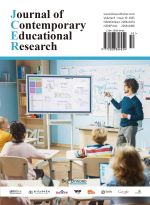Abstract
With the acceleration of global aging, the population aged 60 and above in China has exceeded 280 million, and the contradiction between the digital skills demands of the elderly and the supply of static and universal educational resources has become prominent. This article conducts an in-depth study on the “on-demand creation” model of elderly education resource services driven by generative AI. This study proposes an “on-demand creation” service paradigm based on generative AI, providing suitable resources for elderly intelligent life skills training through demand perception, content generation, and dynamic optimization mechanisms. From the perspective of technological philosophy and service science, deconstruct the core element logic of the paradigm to demonstrate its dual value in reconstructing the theoretical framework of elderly education and promoting practical transformation. This research indicates that this paradigm provides systematic theoretical support for the innovation of elderly education services through a balance between technological empowerment and humanistic care, helping the elderly master modern information technology and life skills, enhancing their self-care ability and social participation, and better adapting to life in the digital age.
References
Hou X, 2025, Practical Exploration and Innovative Path of Elderly Smart Education in Open Universities. Journal of Jiangxi Open University, 27(01): 50–55.
Wang J, 2025, The Subject Value, Realistic Review and Practical Path of Home-School-Community Collaborative Education for the Elderly from the Perspective of High-Quality Development. Journal of Hainan Open University, 26(01): 43–48.
Jacob MM, Livermore KW, Sabzalian L, et al., 2025, “You Can’t Cram for This Kind of Education”: Centering Indigenous Elder Pedagogy to Reclaim Respectful and Socially Just Education. Theory into Practice, 64(2): 197–209.
Wu Y, Li J, 2025, Learning is the Best Way to Age: Construction of an Elderly Learning Service System in the Context of an Aging Society. Population Research, 49(02): 3–16.
Liu H, Huang L, Zeng Q, 2025, Research on the Curriculum Design and Resource Development of Elderly Education from the Perspective of Active Aging. Journal of Social Sciences of Jiamusi University, 43(03): 157–160.
Schmidt EN, Carpenter B, Steffen MA, 2024, Brief Aging Education Impacts Continuing Education Preferences and Behaviors of Mental Health Providers. The Gerontologist, 64(9): gnae085.
Lan L, 2018, The Impact of the “Internet + Higher Education” Model on the Supply of Higher Education Services. Journal of Hunan University of Science and Technology, 39(08): 124–125.
Zhou X, 2025, Research on Heidegger’s Existentialism Construction: A Comparative Study of the Differences in the Conception of Time and Space between Chinese and Western Philosophy from the Perspective of “Being-in-the-world.” Zhejiang Social Sciences, (04): 118–126 + 155 + 160.
Dong Y, 2023, Research on Giddens’ Theory of Structural Power, dissertation, Southwest University of Political Science and Law.
